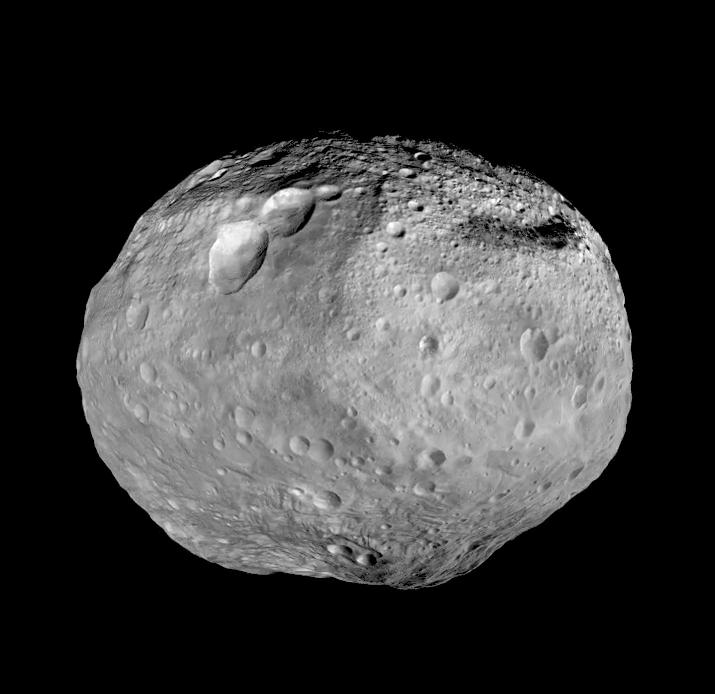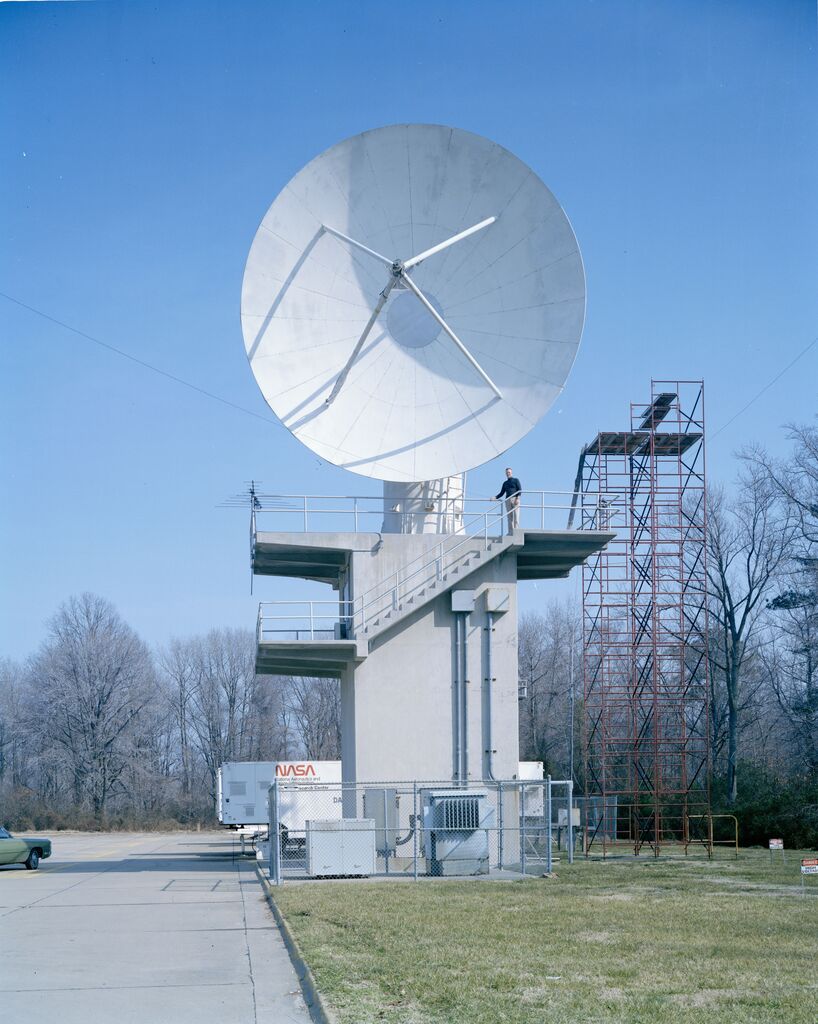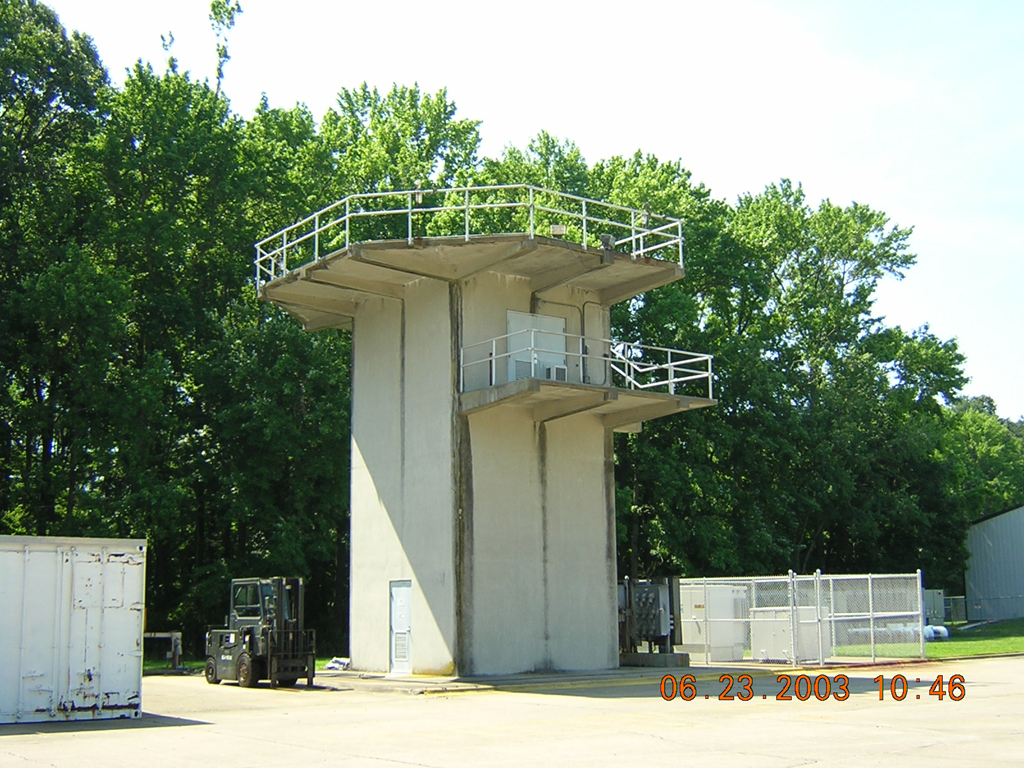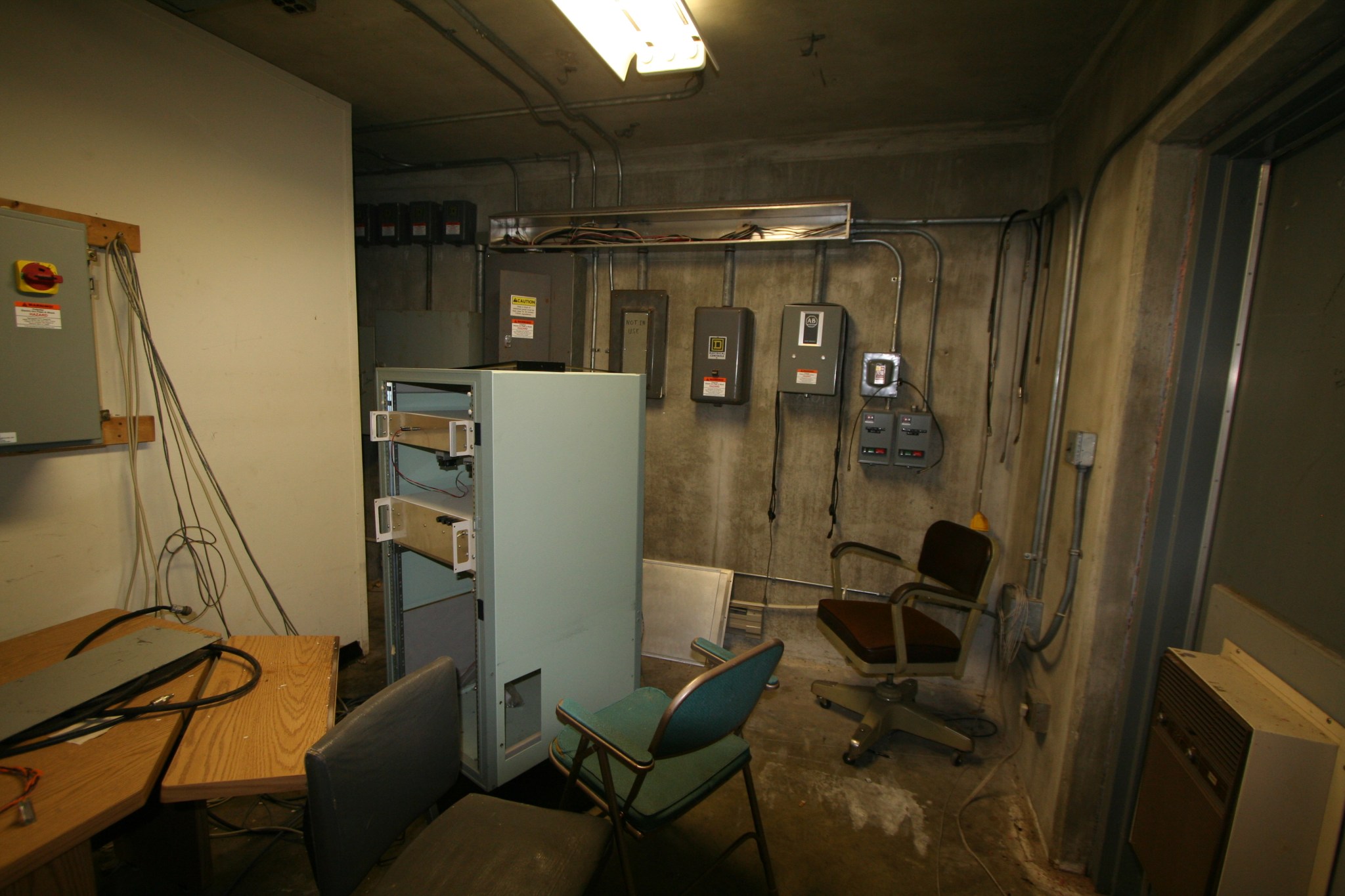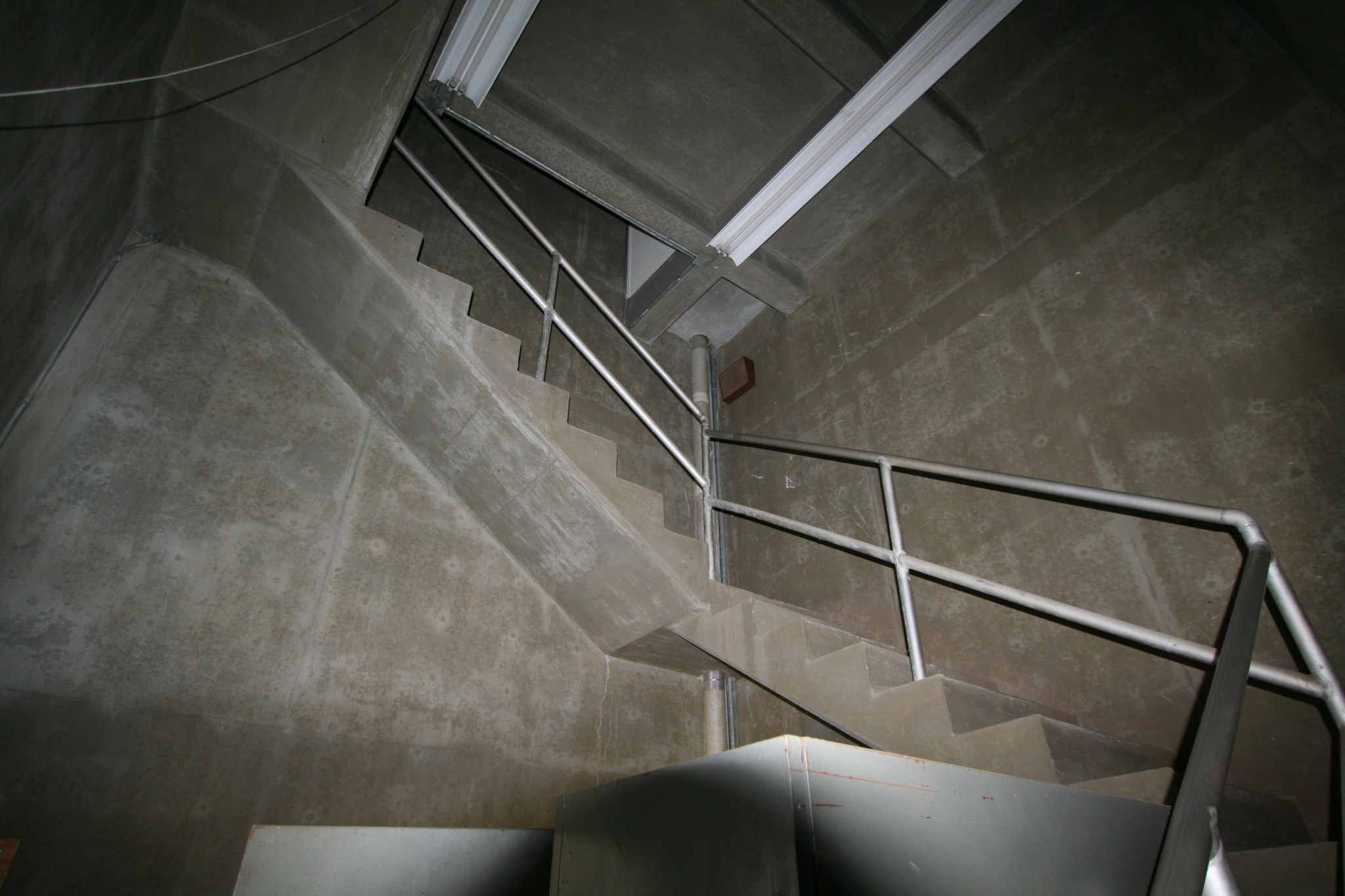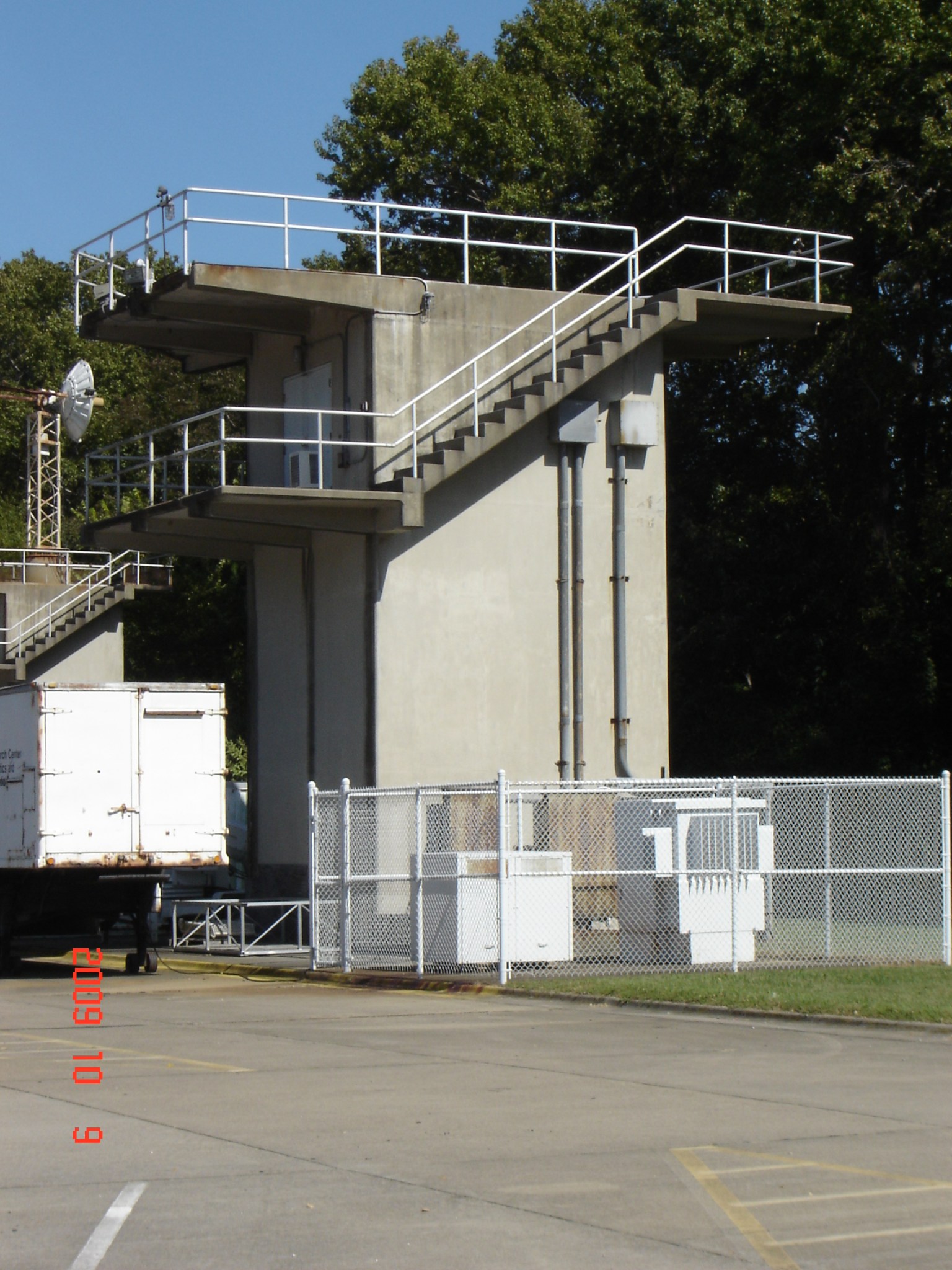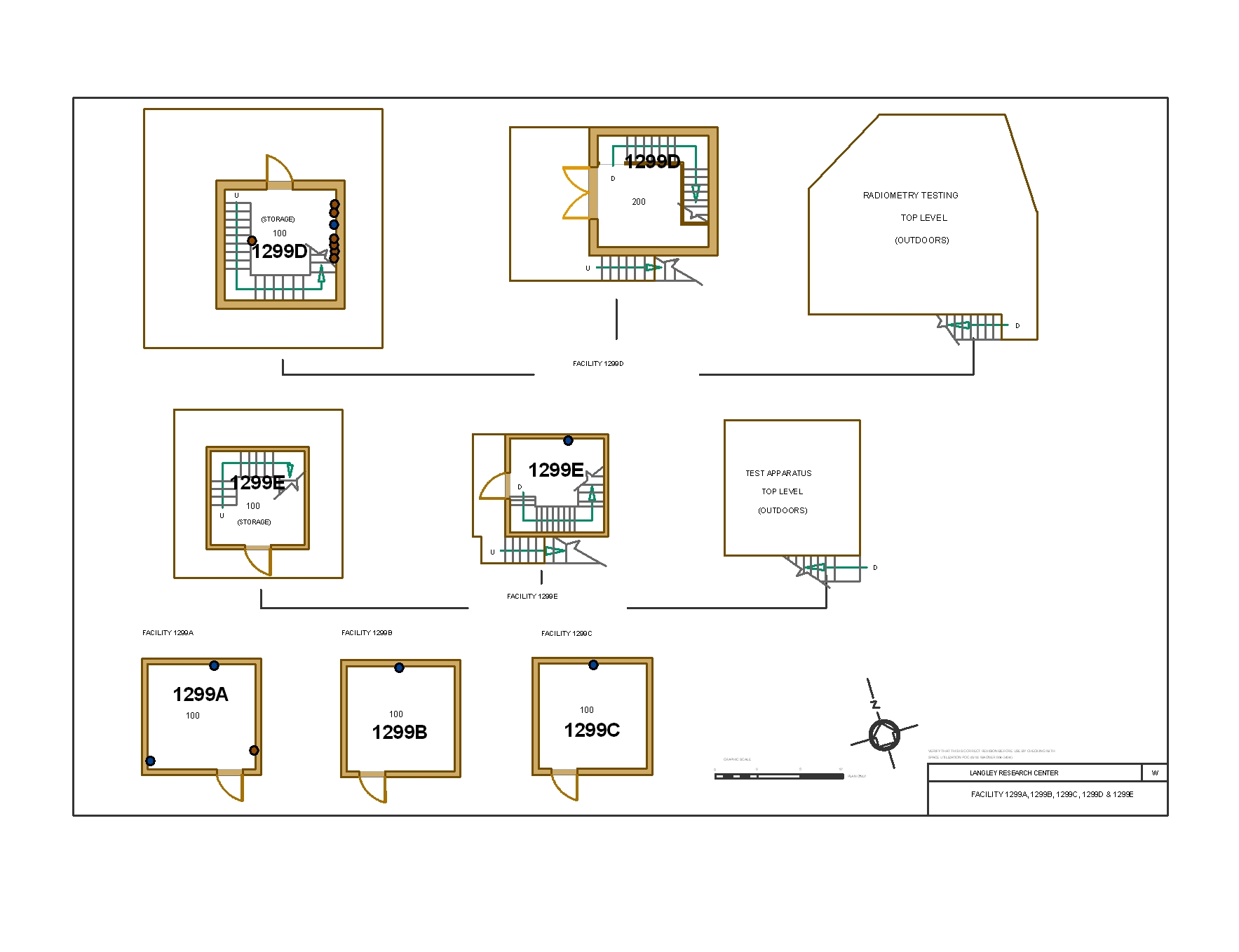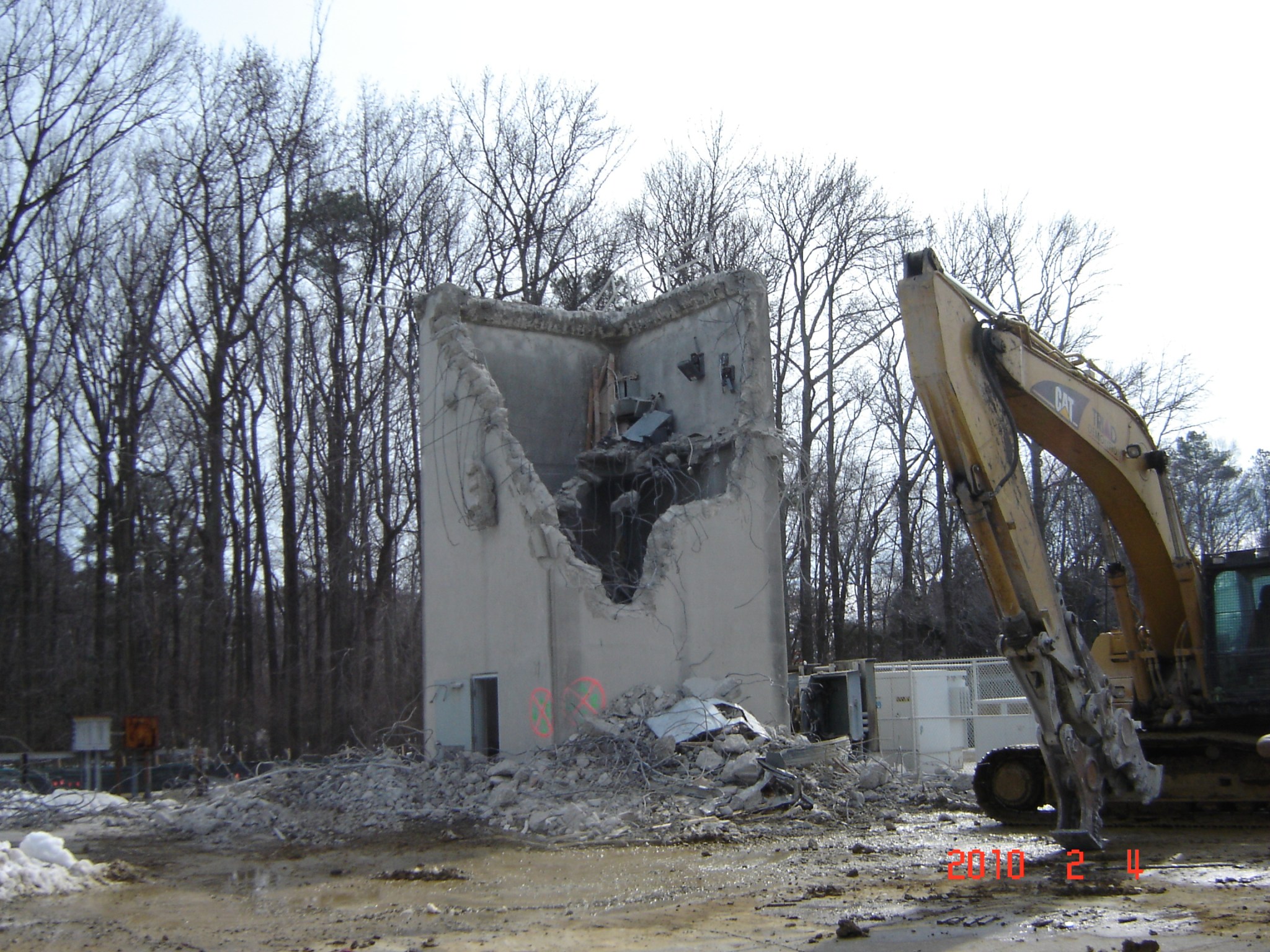Quick Facts
Year Built: 1966
Historic Eligibility: Contributing Resource to Historic District
Year Demolished: 2010
In spring of 1964, a job order was initiated to procure and install an automatic tracking VHF telemetry receiving system to supply information at Langley Research Center in range support for the Wallops Station, located in Wallops Island, Va.
History
Because of its location, this telemetry receiving station was able to receive better signals than either the Wallops or Coquina, N.C., range sites on certain launches. Although there was a ground receiving station at Langley at the time, it was rated as completely outmoded. The signal had to be tracked manually, polarization diversity was not readily available, and the slant range was limited by a factor of 2:1 with respect to this new system. The new antenna provided better data with less manpower as well as providing narrow-beam width (0.25 degrees) X-band telemetry.
The interim site for the system was in the Landing Loads area. There were two systems: a 30-foot Cassegrain Antenna with X- and L-band capabilities, and the VHF Telemetry Automatic Tracker. The interim site was established in the summer of 1965.
In 1997, the antenna was transferred to the state of Florida to support research activities of the Florida Space Institute in Cape Canaveral. The refurbished antenna became part of their activities to develop a multi-user ground station to support payload tracking, data retrieval, command and control operations for satellites, and launch operations from the Cape Canaveral spaceport. The facility was considered abandoned after that.
This building, a part of the Building 1299 research complex, has been referred to as the Radiometry Test Facility, the Auto Tracking VHF Antenna, and the 30-Foot Cassegrain Dish Antenna. It was demolished in 2010.
The NASA Technical Reports Server (NTRS) can also be searched for technical reports related to the work done in this facility.






















